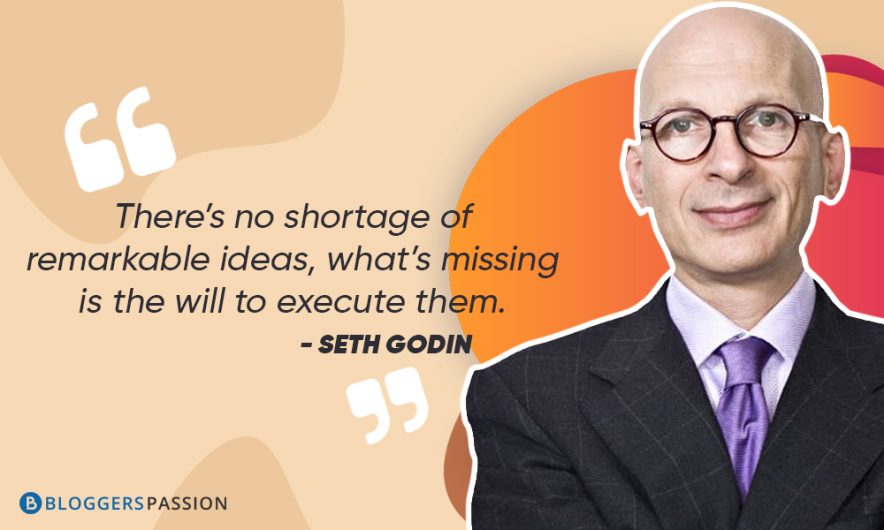
What is the best affiliate program?
What is the best passive income affiliate program?
What is the best high ticket affiliate program?

What is the best affiliate program?
What is the best passive income affiliate program?
What is the best high ticket affiliate program?
Your best care about should be the guiding star in your business; your business vision, mission, and plan.
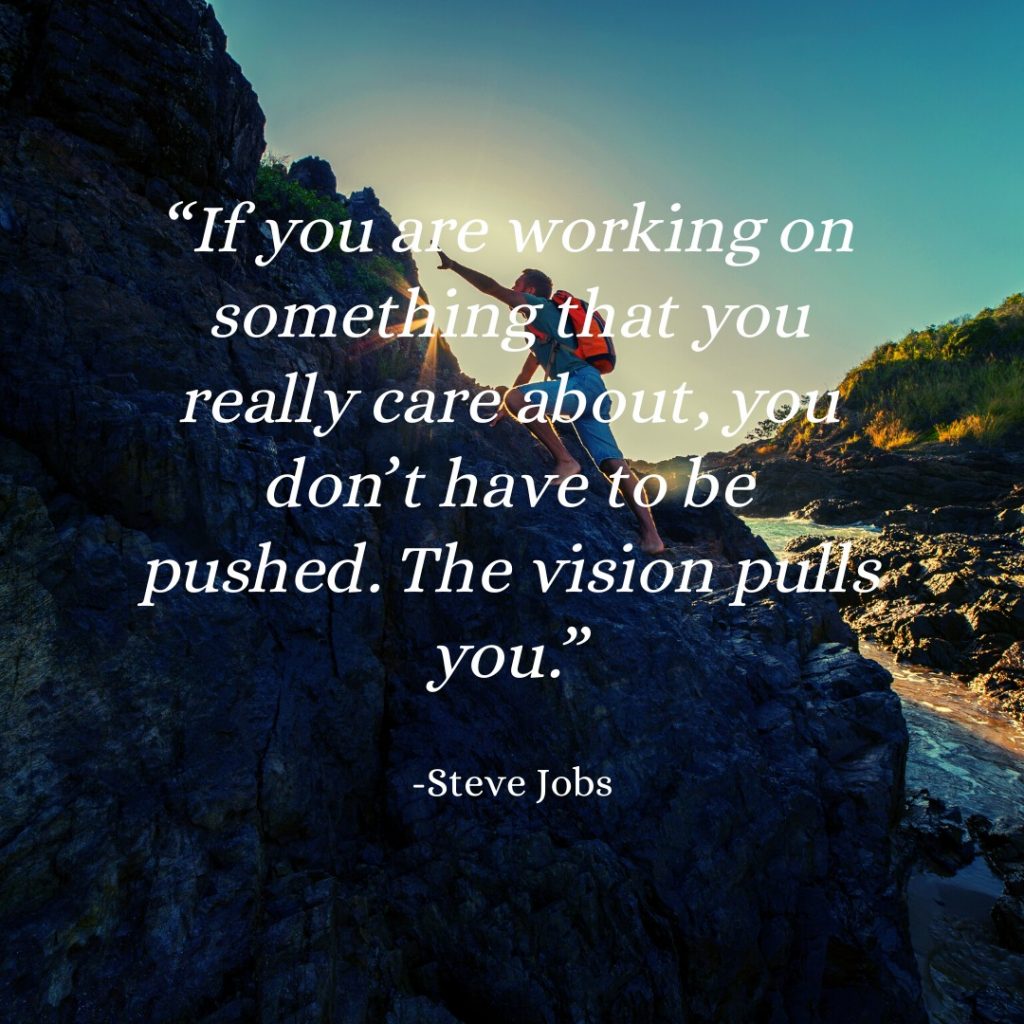
#BusinessPlan, #BusinessStrategy, #Vision, #Mission, #Positiveimpact
Imagine if there were “magic” words you could use in your headlines to get people to eagerly devour your articles and emails. Here are some of the best power words to dominate headlines.
Headlines should be attention-grabbing and informative, using strong, active verbs and specific, exciting language. Headlines are often written in the present tense and use “power words” such as “amazing,” “breaking,” “exclusive,” “revolutionary,” and “shocking.”
The fact is there are some words that work really well at forcing scanning eyes to stay on a headline and read the whole thing.

And when you can incorporate one or more of these words into your own headlines, you’ll find you often double the number of people who click the headline and read the article.
The challenge is to make the word or phrase work for what you’re trying to convey. Forcing these words into a headline where they don’t belong will only create negative SEO consequences. But if you start with the headline in mind, then these power words can work in your favor.
2023 [The current or upcoming year]
According to
Ahead of the game
Amazing
Amplify
Approved
Astonishing
At every stage
Attractive
Authentic
Backed
Basic
Because
Before
Beginner
Beginner Guide
Beginner Lesson
Beginners
Best
Best selling
Bright
Brilliant
Case Study
Certified
Cheat Sheet
Clear
Complete
Complete Beginner’s Guide
Complete Guide
Controversial
Easy
Easy & Fast
Easy & Free
Easy Guide
Effective
Efficient
Effortless
Ensured
Extra
Fast
Fast & Easy
Fast & Free
For [Your Target Audience]
Forgotten
Formula
Free
Free
Free & Paid
Full Walkthrough
Genius
Good-looking
Greatest
Guaranteed
Improved
Incredibly
In-Depth Guide
Insane
Instant
Instantly
Lifetime
Make Money
Manifest
Mind-blowing
Monetize
More
No Money Down
No New Equipment
Now
Optimal
Proven
Quick
Quick-Start Guide
Replicate
Research
Results
Results
Ridiculous
Secret
Secure
Shocking
Simple
Six-figure
Skyrocket
Smart
Steal
Step by step
Steps
Strange
Stunning
Successful
Template
That Really Work
That Work
The Basics
The Complete Guide
The Definitive Guide
Tutorial
Ultimate
Ultimate Beginner’s Guide
Ultimate Guide
Unbelievable
Unconventional
Unique
Untold
Value
Video
Walkthrough
With Pictures
With Stats
With Videos
You
You’re Not Lazy
When striving to create a powerful, dominant title, you must remember to balance packing the title with power words and SEO considerations.
SEO-friendly titles should be descriptive, concise, and include relevant keywords.
Although creating that supper headline or title is as much of an art as it is a science, I strongly suggest using helpful SEO tools. Some platforms have SEO and analytics incorporated, while others may not.
Just do a little searching and you will find plenty of options. I use GetResponse, Groove Aweber and HighLevel. For SEO Buzzsumo, DataBox, Mangools, HighLevel, and Groove all have trial free periods.
In a previous blog, I talked about Ryan Robinson’s blog and resources and free tools he offers. In that blog I linked to a key word finder and to a SEO title generator. I use these on a regular basis and find them quite helpful. The key is to use power words while staying within the confines of a clean title from the SEO gods perspective.
Enjoy the challenge!
Dave,
blog, online resources, memberships
P.S. These are my personal recommendations for my valued readers:
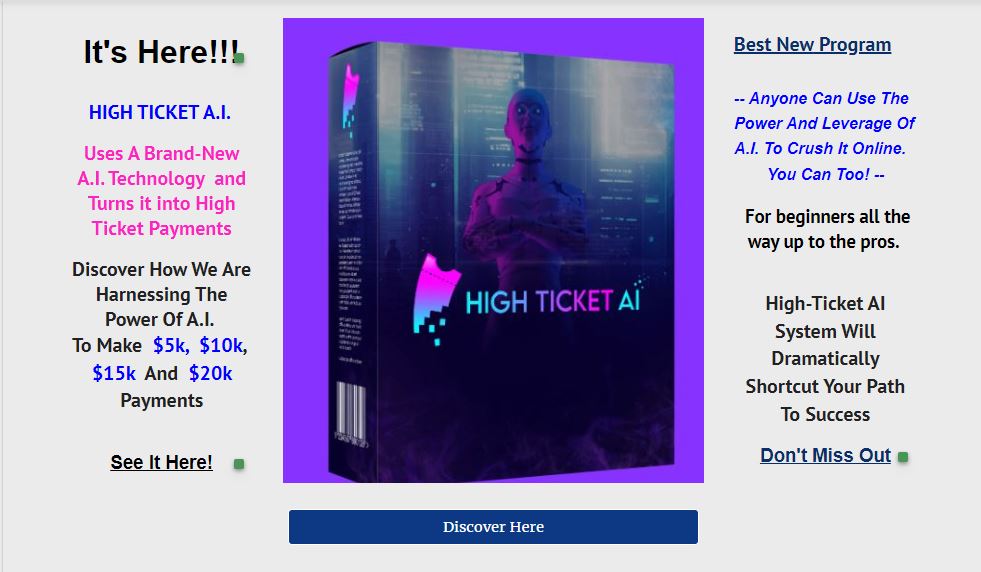
When I finally implemented a content strategy for my own business, it far exceeded my expectations and more than doubled the number of leads and sales I received from my content marketing efforts. The results were incredible.
You’ve probably heard of content strategy before, but what is it really? And how can it save you time and effort?
Your content strategy is the plan you develop for what kind of content you will create, how you will distribute it, and how you will manage it over time.
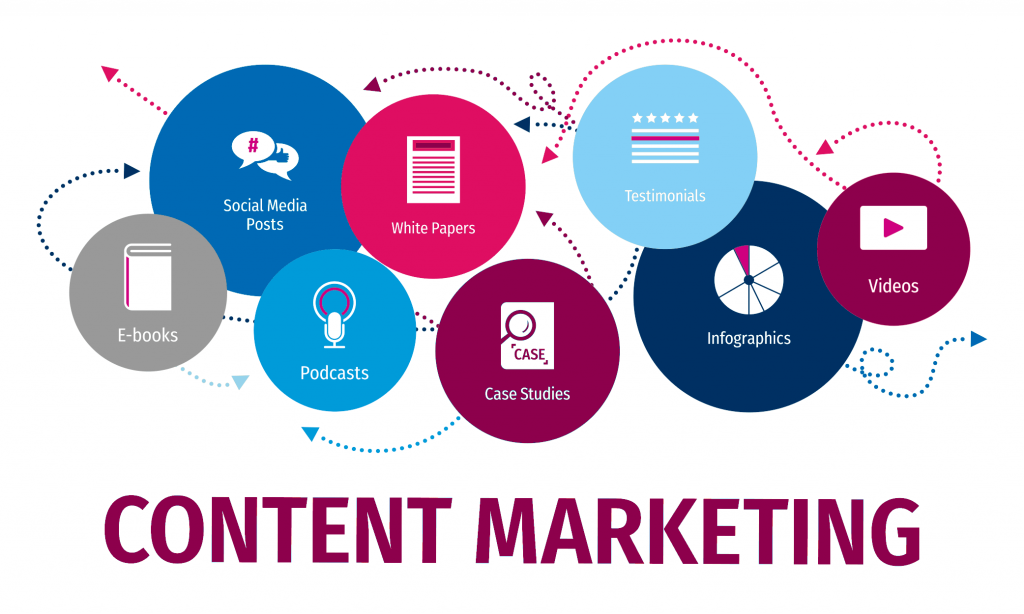
In other words, it’s a way to make sure that your content is optimized for growth.
When you take the time to develop a content strategy, it can save you months of time and effort. A well-thought-out content strategy will help you focus your energies on creating content that is aligned with your business goals and audience needs.
If you’re constantly creating new content without a plan, you’re wasting time. A content strategy will help you determine what type of content to create, how often to create it, and where to distribute it. This will save you time in the long run.
Lead generation is all about getting your content in front of the right people. A content strategy will help you identify your target audience and create content that resonates with them. This will help you generate more leads and convert more prospects into customers.
When you have a plan for your content, you can track its performance and adjust your approach accordingly. This will help you improve your conversion rates and drive more sales.

If you want to scale your business, you need to have a plan for your content. A content strategy will help you create a system for producing and managing your content. This will make it easier to scale your business without sacrificing quality.
The first step in creating a content strategy is to define your business goals. What are you trying to achieve with your content? Do you want to increase brand awareness, drive traffic to your website, or generate leads?
For each of your goals, test to find which types of content perform the best for that goal.
For example, some people won’t even know they need your product until you educate them on their problem and how your product solves it. The content you write in this case will be a lot different than if people already know they need a product like yours, and you just need to show them why yours in the best one for them.
Another important step in creating a content strategy is to know your audience. Who are you creating content for? What are their needs and interests?
Consider the demographics of your target audience such as age, gender, education and experience.
Create a buyer persona of your idea prospect and then target that person. According to Groove, using buyer personas make websites 2 to 5 times more effective as well as improving the user experience.
Find your prospect’s interests, their problems related to your niche and what they are complaining about. Go to sites that sell similar products and see what people say in the reviews, both positive and negative. Check out forums, social media, niche groups and anyplace where your ideal prospect hangs out.
The more you know about your prospect, their problem, their desires and their objections, the better you can craft your own messages.

Once you know your business goals and audience, you can decide what type of content you will create. Will you create blog posts, video content, or podcasts? What format will your content take? The type of content you create should be based on your business goals and audience needs.
Find out where your ideal prospects hang out and then reach them where they are.
If your prospects are on Instagram, then that’s where you go. If they are on LinkedIn, then you know where you need to be.
If you’re unsure, you might need to do more research or simply test one platform against another until you find the right fit.
Once you know what type of content you will create, you can start to develop a content calendar. This will help you plan and schedule your content so that you can stay organized and consistent. A content calendar will also help you measure your success over time.
Ideally you want to take your prospect through a buyer’s journey that results in a sale.
One of the most common buyer’s journeys looks like this:
But if possible, you want your product to be perceived as having no competition at all. This way you will eliminate comparisons with competition, removing that step in the buyer’s journey and getting to the sale that much faster.
Promote your content once it’s created. Share it on social media, email it to your list, and make sure it’s easy for people to find. The more people see your content, the more likely it is to achieve your business goals.
Be sure to keep your content updated as well. Old, outdated content is not going to help you and in fact it can even turn people away from you.
This is where you will analyze which content is bringing in the most traffic, which content is converting to the most subscribers and which content is bringing in the most sales.
It’s possible that one piece of content will bring in 1,000 new subscribers but none of them will purchase, while another piece of content will bring in only 100 new subscribers and 7 of those will purchase. It’s important to analyze not just which content brings in the most eyeballs and the most subscribers, but also which pieces result in the most sales over time.
Double down on the content that is converting and stop wasting time with content that isn’t working.

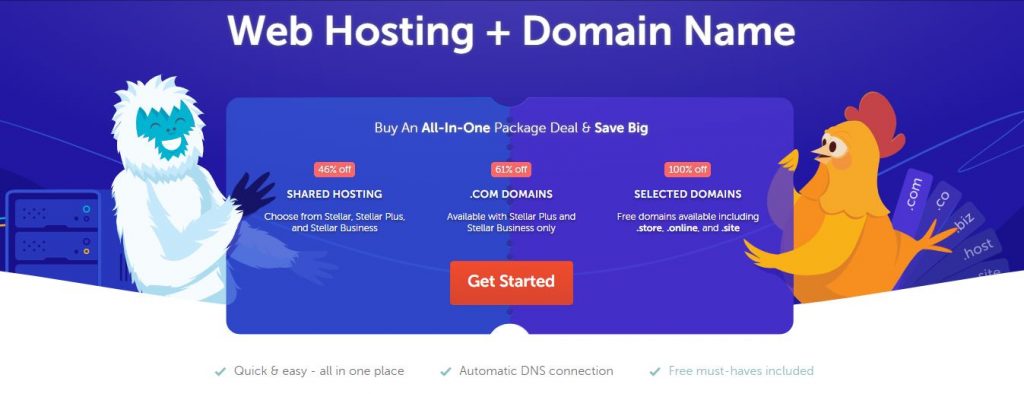


Creating a content strategy is worth it because it provides you with clarity and makes it easier to know what kinds of content are going to bring you the greatest return for your time.
Instead of randomly posting odd bits of content as you think of it, you’ll be able to focus on exactly the types of content that do the most work to bring in the most sales.
Learning to build and use my own content strategy more than doubled my sales in a very short amount of time, and I’m confident it can do wonders for your business as well. And a well-thought-out strategy will save you time and effort in the long run and help you create only content that is aligned with your business goals and audience needs.

And one final benefit. The work is well worth it. The peace of mind that you have knowing that you are organized, prepared, and going down the right strategic path helps you rest easier and sleep at night.
The sooner you create, compile and execute your content strategy campaign, the sooner you will know your on your chosen, strategic path, and not meandering as the wind blows. Then kick back, pat yourself on the back and relax.
Speaking of relaxing, today is Freebie Friday! Below is my awesome freebie of the week!
Beginner Affiliate Marketing Course
Happy Freebie Friday!
P.S. These are my top personal value recommendations:
The dream is to sit on the beach while the money rolls into your bank accounts. You no longer have a job or even need a job. The days of crappy bosses are over. You know that no matter what, a residual stream of income will flow into your bank account every month. So how can I achieve this dream. How do I create passive income? What is the single greatest component of passive income?
As the waves roll in, you relax and sip a Mai Tai on the beach. Your carefree and you’ll never have to worry again.

First, most passive income is going to take a little work to maintain. Unless you’re getting dividends from a multi-million dollar stock portfolio or you’re a trust fund baby, you’ll need to do some stuff to make sure that money keeps rolling in each month.
Second, spending all of your time partying and no time accomplishing anything gets real old, real fast. Twenty somethings I’ve known who made seven figures and thought they would party the rest of their lives found out that never ending partying with never ending hangovers gets old, fast. Then again, if that really is your dream, then more power to you.
But here’s the secret to passive income that most people miss entirely:
In order to get passive income – that is, income that comes to you without further work – you first need to work.
If you go to a job where you get paid $20 an hour, after a week you get a check for $800.
But when you’re building a passive income, you might work weeks or months before you start seeing returns.
There is no passive income free ride.
Instead, passive income comes after you do the work.
You’ve got to do some serious work first. Or else you buy a site or program that has been already created.
When you change your mindset from, “get rich quick” to “do the work now, get paid for a long time later,” it becomes much easier to set a goal and then put in the time each day to getting closer and closer to that goal.
That’s why the first step to passive income is action.
Let me offer you what might be the ultimate example of creating a passive income stream with a lot of hard work:
Before expenses, Noah earns $357,000 in passive income…
per MONTH.
Wrap your head around that.
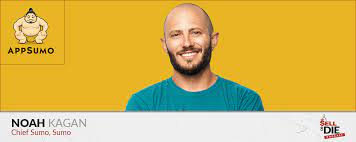
And he calls his “community of hustlers” site “The #1 Business Channel for Entrepreneurs.
And in this video… https://www.youtube.com/watch?v=HHR-NeSuynw&feature=youtu.be
…Noah reveals his passive income channels as an entrepreneur and YouTuber. Watch closely and you’ll see that a lot of his income streams aren’t passive at all. Rather, they’re the accumulative result of years of hard work and dedication, which now allows him to step back when he likes and still earn this income. By the way, he also reveals they invested over $400,000 into videos for the site, so take that into account as well.
But now matter how you slice it, Noah has done very well for himself.
And remember, he would never be earning this amount of money ‘passively’ if he hadn’t first worked his tail off.
Passive income requires hard work and dedication upfront.
Or if you don’t have the time, or you want to take a short cut, then you can buy a site, programs or funnels.
Here are 10 passive income membership sites that allow free access
The access gets you 10 courses and resources. The funnels progress with more paid training and resources Ultimately you can purchase a membership resellers license. So basically, a short-cut to owning your own passive income membership site.
Each of these sites has reseller rights available for purchase. This is a fast, easy, and efficient way to create an automated membership site, providing you with passive income and building your list at the same time.
So whether you do the work, or whether you buy the work done for you, there is a whole lot of work to be done to create a passive income stream. But wow, are they so worth it!
To your success,
Dave
blog, online resources, memberships,
PS – My special offer for all Passive Income enthusiast! This is a great course at even a better value, Passive Income Strategies – 90% off – use coupon code “90%OFF2DAY”
Backlinks—real, genuine, earned backlinks—are a crucial component of SEO. Everyone is after SEO links to top linking sites, and so the sites continue to grow with continued linking. It’s a repetitive phenomenon that feeds upon itself; the “SEO vicious circle problem.” Don’t follow the crowd. Here is how to outfox the SEO vicious circle problem.
You can’t buy backlinks in bulk and expect to get results because, well, big brother… er… I mean, Google, will know what you did. Since backlinks are crucial, what do you do to outfox the SEO vicious circle problem.
You can buy real backlinks, but it’s super expensive and super slow to do that, and it’s still not always a good thing to do.
It’s far, far better to earn your backlinks the old-fashioned way, by creating outstanding content that others link to.
But there’s that problem we mentioned:
According to a study conducted by Ahrefs — an internationally recognized SEO, keyword, and backlink authority, — top pages in the top spots get the top number of backlinks.
And thus … “the vicious circle of SEO.”

Here’s how they explain it:
It’s the theory that people are most likely to link to top-ranking pages. As a result, those pages get links at a faster pace than all other pages on a given topic. Thus, they are almost impossible to beat in the SERPs. – Ahrefs
But if you dig deep into their study, you’ll also find the solution.
And it’s a solution that even the newest marketer can use to begin getting backlinks and free traffic from Google.
Ready? Here it is…
The secret to building organic backlinks is to rank number one for low or no competition keywords.
In the experiment, pages in the top spot for low and no competition keywords earned an average of 24 backlinks every single year.
That’s because as the top pages get more exposure, they also get more backlinks. The key is valuable, in-depth content for keywords that have virtually no competition.
If you watch the news in your niche, you’ll begin to notice that new terms are coined. If you are the first to create quality content for those terms, you can build links organically. And when that term is well known and well used, you’ll be so far ahead of the competition that no one is likely to touch you.
You can also search for keywords that are already in use but have no definitive content. You then create that content to become the go to source for that information.
In both cases, be sure to update your content regularly to continue receiving backlinks and maintain your page 1 position in Google.
Remember, the less competition, the better.

As your articles rank #1 for multiple keywords, you’ll start to get backlinks. Each top article on a low-competition keyword is working hard at bringing you traffic 24/7/365. And if you build a stable of these, then you’ll never have to worry about how people will find your site.
That’s about as “passive” as passive income gets.
To your success!
Dave
blog, online resources, memberships,
P.S. These are my personal recommendations for my valued readers:
TikTok might be the latest, greatest social media channel, but don’t think for a second that Instagram is to be ignored. You can build a huge, active, and engaged audience on Instagram using this strategy. Read this Mini-Case Study: How to Achieve 90,000 Instagram Followers in 365 Days.
Instagram has over 2 billion monthly active users, it was the most downloaded app at the end of 2021 and the beginning of 2022. Instagram users are active, with 59% of users logging in daily.
The most expensive influencer charges $1.015 million per post, and yet the most liked photo on Instagram is a photo of an egg with 59 million likes.
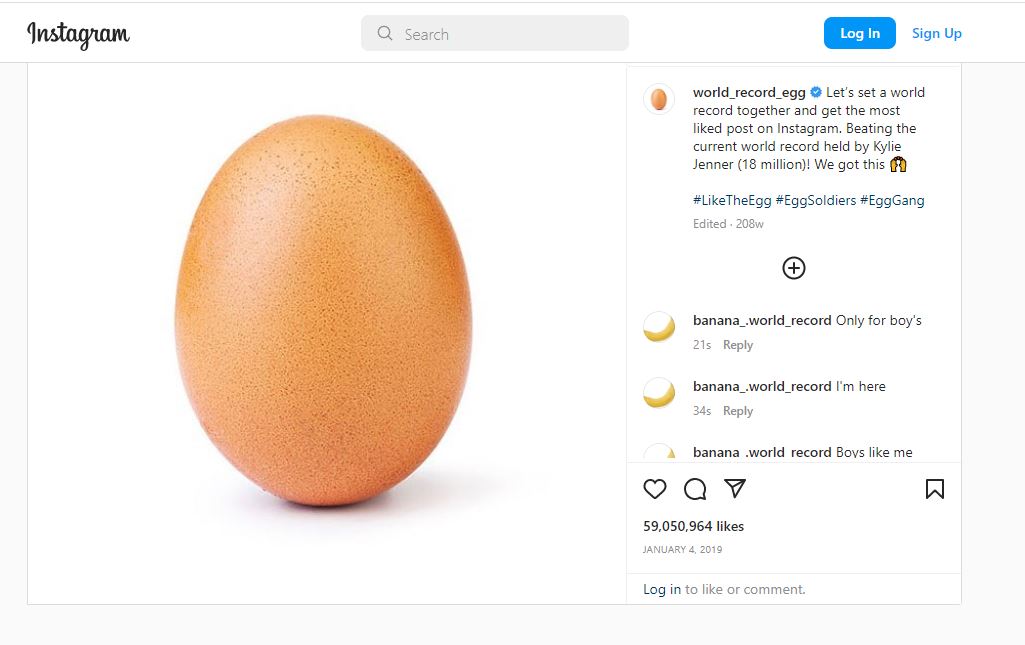
In other words, while people are making big money on Instagram, if you can post something more interesting than an egg, then there may be hope for you, too.

But hang on. I do not want to be posting old, or inaccurate information just to make a story.
The egg has since been dethroned.
Almost three years after the egg’s historic rise to record rank and stardom as the most-liked post on Instagram, it has been knocked down to second place. Surprisingly the roust didn’t really cause a huge squawk…
And the egg’s replacement? A post from Argentine soccer player Lionel Messi celebrating the victory of the World Cup.
Messi’s post has received more than 70 million likes compared to the egg’s 59 million.
It’s not surprising, given the worldwide fame of the World Cup, and also of Lionel Messi himself. Messi is reportedly the third most followed account on the Instagram platform. He follows Instagram’s own account and Cristiano Ronaldo, who is another soccer player.
Now let’s get back to the 90,000 followers. Here’s how “SocialMediaQueen” built her following from zero to over 90,000 followers in 365 days:
First, you need content. A LOT of content. But that’s true on any platform. When you’re trying for organic growth, you’ve got to put your message out there several times a day.
And the content must be valuable your audience.
Generally, content has value if it’s entertaining, encouraging or educational.
If you can manage to hit all three, then that’s even better.
Second, you don’t need new ideas to make this work. If you can find a hundred different ways to say ten different things (that’s 1,000 posts right there) then you’ve got what it takes.
Remember, not everyone will see all of your posts. And no one will remember all of your posts, either. Repetition of message works great if you can just find news ways of conveying your message.
For example, “Don’t give up, you can do it.” How many different ways do you think you could convey this message? There’s no doubt you could find a thousand different quotes, anecdotes and stories with this theme, or perhaps even ten thousand.
I whole heartedly agree, and believe this to be accurate. Expressing content differently can create unique perspectives. It is not surprising that given different personalities, possessing different skillsets, interest and ideas, repurposing content, (stating in different ways) can have very positive and beneficial results.
Take for example this egg, as compared to the “superstar” egg.
Now I would argue that although they are both eggs, that “my egg” has a unique, rather picturesque, way about it that expresses it’s unique character in a lackadaisical sort of way. Something in which that rigid, and straight-upright superstar certainly lacked…
Just say’in.

Third, you’ll need a content schedule to keep you on track. Here’s Katelyn’s weekly schedule:
This is as much as 27 pieces of content every week, or approximately 100 per month. That sounds like a lot for one person to create, but keep in mind the plan is to grow your following. And an aggressive schedule will do just that.
If you check out Canva you’ll find templates for creating quality content quickly. Sit down once per week and create all of your content for the week, or even spend an entire day making content for the month.
Notice, too, that on Instagram you can monitor not just your number of followers but also the number of accounts you reach. Even if you fall short of 100 posts per month, you can still reach a large number of people on Instagram. Even starting from scratch, you can reach 25,000 people every week.
Note that the vast majority of your reach will likely come from Reels, since the algorithm is currently pushing those.
There are additional steps that you should take and activities that you can do to engage and attract followers. Beyond content and being active, here are three strategies that you should incorporate into your normal day to day activities to build your followers.
It is also important to be authentic and genuine in your interactions with others on the platform, as this can help you build a loyal and engaged following.
By implementing these strategies and focusing on a clear theme or niche, you can attract users who are interested in your content and build a loyal and engaged following on the platform.
And lastly, remember that it does take time. There are those that do rise to fame and stardom quickly, however this is the exception and not the rule. Not everyone can be egg-ceptional.
Thanks for hanging in there with me tonight. It’s been a long day.
Work hard and shoot for the stars. All the best.
Dave,
Blog, Online Resources, Recommendations, Memberships

“How to Become a Successful Social Media Influencer”
Special Blog 90% Discount
for my valued readers
Pick up for less than $5.00!
Use code BLOGSPECIAL-Z1S on checkout
I’m going to show you a simple formula to make your content addictive, memorable, and attention grabbing to the point where people are dying to read it and buy your products. And this is all by creating an incomplete marketing strategy.
But first, let’s find out what a Zeigarnik is and what it can do for your bottom line…
The Zeigarnik Effect states that people tend to remember unfinished or incomplete tasks better than completed tasks.
For example, waiters are better at recalling orders they have not yet delivered than orders they’ve already fulfilled. An order that’s unfulfilled is unfinished, but an order delivered is finished.
Your audience is no different. They crave completed stories. They crave resolved problems and answered questions. And they crave achieved goals.
Soap operas do this all time.
“Tune in tomorrow to find out if Jane’s two headed baby survives diabolical doctor Dan’s nuclear attack.” (I don’t watch soap operas, but that sounds about right…)
News Channels do this.
“Join us after this commercial break to discover which product in your bathroom cabinet is making you unlikeable, ugly and sterile.”
Video games keep their players super addicted using this very technique.
Your goal in using the Zeigarnik Effect is to open loops that your audience desperately wants to close. Think of a cliffhanger and you’ll know what I mean.
For example, in social media you can create open loops between posts. Ask questions and post regular updates on a continuing story. Take your followers on a journey and so forth.
In your content, let readers know there is a big payoff coming soon….
But first you have to cover important ground to get there.
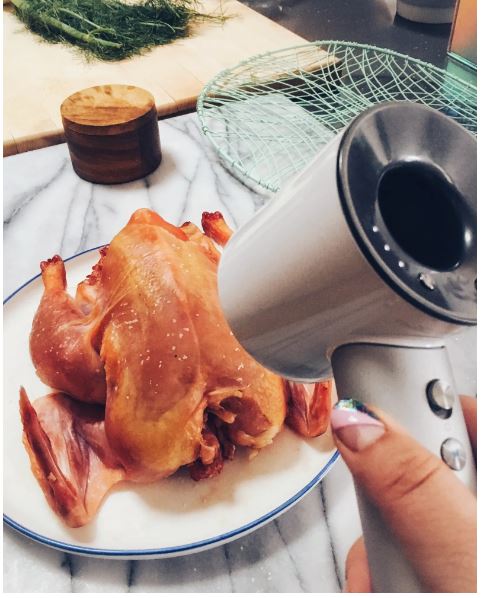
In your emails, create teasers at the end of each email that makes the reader look for your next email. “Look for my email tomorrow where I’ll show you how to feed 12 people using one chicken, 6 ketchup packs and a blow dryer.”
And this was really an article in the New Yorker Magazine, so it is actually old news.
If you would like to see the article for yourself, here is the link.
And no, I didn’t follow up with them to see if this article was a barn burner for them. But I bet it did make for some interesting comments.
Now here’s a simple formula you can keep on your desktop to remind you of how this is done:
“In a moment I’m going to show you [something powerful, strange or amazing] but first let’s take a look at [something needed to set up the powerful, amazing or strange thing].”
Again…
“In a moment I’m going to show you ___ but first let’s take a look at ___.”
Examples:
“In a moment I’m going to reveal my Number 1 secret to acquiring and retaining million-dollar super affiliates, but first let’s talk about what a super affiliate can do for you.”
“I’m about to show you the exact formula I use to earn no less than $3000 for every email I write, but first let’s talk about how to build a million-dollar mailing list.”
“As promised, I’m going to show you the 5 secrets to winning or placing in every single gardening contest you enter, but first let me tell you the super embarrassing story about the first rose contest I ever entered.”
When you Zeigarnik your readers using this method, you’ll find far more of them happily read the full article or watch the full video. It makes a much better reading or viewing experience for them and they’re more likely to consume more of your content as well as pay more attention to your product offerings.
I’ve seen sales videos that use this method several times in one video. This angers and annoys their viewers and ultimately reduces. That’s because when you use the Zeigarnik method occasionally, you peak interest.
But if you use it over and over again, people will become weary of continually being strung along for the ride.
Make sure you fulfill your promise and more. I’ve also seen sales videos that promise to reveal certain information if the viewer keeps watching only to never reveal it. Prospects hate this, as they should. The marketer has failed to make good on their promise, the prospect is angry for having wasted their time watching the video and nobody wins.
It might take a little practice to master this technique, but it’s well worth it. There isn’t a seven figure marketer out there who does use it, and now you can, too.
And for one last example of the Zeigarnik effect, you might check out the first paragraph of this article. 😉
To your success!
Dave
blog, online resources, memberships,
P.S. These are my personal recommendations for my valued readers:
Once upon a time, email marketers sent out long emails that told stories, revealed how to do things, and sold products. Increased anti-spam measures require more due diligence to get your emails delivered to the recipient’s inbox. You may need some adjustments. Here are 6.5 easy steps to increase your clickthrough rate.
Emails being sent to the promotions folder. IP addresses blocked. Spam filters removing emails from existence. Domain names needing to be verified. Or Apple opening emails and scanning them so that you have no idea how many real people opened your emails.
Does email marketing still work? You bet it does. Email marketing is still the most cost-effective method to reach your audience and make sales.

But times change, and the way we email market needs to change as well. You will need to make adjustments to keep your click through rates up. If you strategize and adjust accordingly, you may actually be able to increase your clickthrough rates with these easy steps.
When you send out that email that took you so long to thoughtfully construct, it could evaporate into the mists of time never to be seen. It would be like you never wrote it at all.
But, place that same content on your website, and you can spark conversations while you cut your workload in half. Instead of writing an email and an article, you focus your efforts on just the article. Now you can send social media traffic to your article and also continue to refer back to it in future pieces of content and future emails, too.
Now, I’m not saying you should stop emailing. Not at all. But instead, you might update your email process so that it looks like this:
By sending out a short, catchy email that directs your subscriber back to your website, you’re increasing the odds the email will land in their personal folder. And you’re also going to increase your open rate as well.
Place your real message on your blog. Then send your readers a super short, catchy email that lets them know if they want to continue reading, here’s the link to do just that.
When you write to a friend, are you usually sending them a thousand words? Not likely. Google likes to decide what emails get through and which are relegated to the promotions bin.
Instead of having to write articles and posts in addition to your emails, you get to focus your efforts just on the website content.
When you create something, you want it to be seen and accessible for longer than 10 minutes in someone’s inbox. Placing your content on your site instead of in emails allows new visitors to binge read your stuff and get to know you. And it has SEO benefits as well.

Some of your best ideas for future content and products won’t be your ideas at all. Instead, they’ll come from your readers. Give them the chance to interact with you and your content.
Encourage their feedback. Ask them questions. See what they have to say. And make new contacts and friends while you’re at it.
Using this method you’ll likely see your clickthrough rate greatly increase over time.
First, you’re sending out a SHORT email of just a few lines. Make no mistake, you still need to put effort into this email to get the click.
Entice them with the solution to a problem or with a great story. Then let them know that to read more, they simply need to click. This works like magic once you master the technique.
When you send them to an article about driving targeted traffic, offer them a cheat sheet or list of resources to get their email address.
Yes, you already have them on your primary email list, but now you also know they are specifically interested in driving traffic, too.

Storytelling is pure magic for capturing attention, removing barriers and even making sales. Start many of your emails with a story and let them click the link to find out how the story turns out.
Choose your words carefully. For example “Make Money” is sure to get your email sent to the SPAM folder. Try sending one short email every day for a month. Pay attention to your click through rate and see how it improves over the course of the month. And then decide if this method is right for you.
And a whole host of additional issues that you can learn more about in these resources.
GetResponse does a great job with providing and assessing data. They have an extensive Email Marketing Benchmark Report that is worthy of your time to review. Perform A/B testing and benchmarking and follow best practices.
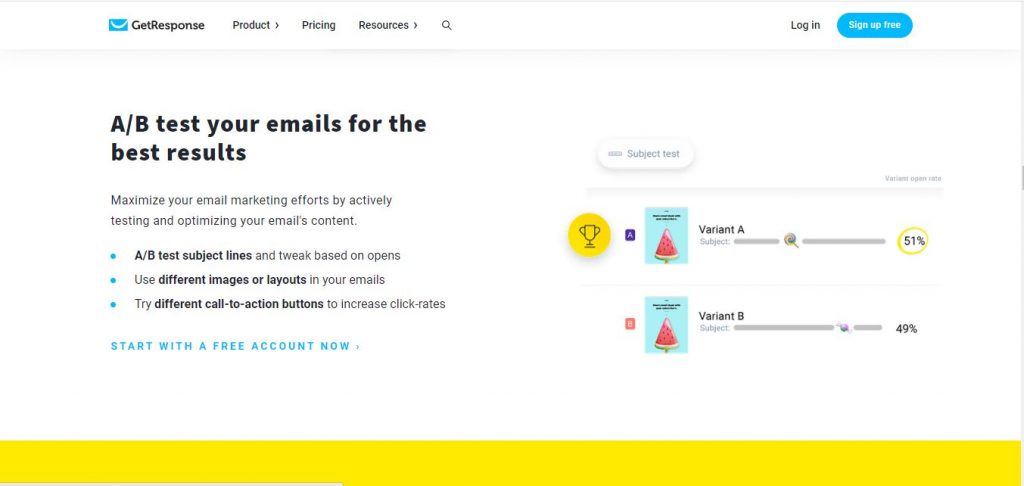
Groove provides extensive best practices to follow to help prevent your emails from being kicked out by SPAM filters that IT companies utilize.
Hubspot has a great article on their blog that you may want to use as a reference. “The Ultimate List of 394 Email Spam Trigger Words to Avoid in 2023”
These adjustments can help preserve, or even improve your email clickthrough rates. The first step in any email marketing campaign is getting eyeballs on your content. You’re dead in the water if you can’t get your email to the inbox folder.
To your success!
Dave
The best bloggers out there are absolutely killing it, earning far more than most people can even imagine. How do bloggers make money? Stick with me, and I will share 10.5 tips from one of the best: how do bloggers make money?
One of the best is Ryan Robinson. Ryan earns more than $30,000 per month simply from his blog. Not bad, right?
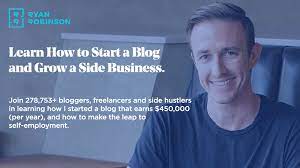
In Ryan’s case, it took him over two years to begin generating serious income from his blog. He launched the blog in 2014, and the first monthly income report he published was in 2018 for $9,322. But he has gone on to be a leader in the industry, and one well worth taking note of.
Generating traffic organically takes time and patience but it can pay off. Ryan says he doesn’t expect a new post to rank on page one of Google any sooner than after six months, if they rank at all. Blogging will not get you rich overnight, but if you keep at it then you could build to a serious income over time.
1: He writes massive 10,000 word posts. These are enormous authority articles that sometimes rank for the most popular of keywords, such as “business ideas” which is a 100,000 monthly search volume keyword.
2: His favorite post is the listicle; huge, exhaustive lists such as ‘101 Business Ideas’ and ‘70 Genius Ways to Make Money Online.’ These posts could easily be Kindle books but he chooses to place them on his site to bring in traffic.
3: His other favorite type of post is the ‘how to’ guide, such as How to Start a Blog and How to Start a Freelancing Business While Working Full Time. These are long, detailed and all-encompassing guides that Google loves to rank high.
4: 92% of his income comes from affiliate sales. His top three affiliate products are Bluehost, Dreamhost and Flexjobs.
5: Ryan writes about freelancing and making money online because he’s worked as a freelancer and because there is substantial affiliate income to be made in this niche. He doesn’t recommend choosing a niche just because you love it unless you know ahead of time how you’re going to monetize it.
6: Ryan focuses on getting backlinks because Google determines your ‘social status’ with your niche via the number and type of backlinks you have. Some of his backlinks come from major sites such as Hubspot, GoDaddy, Yelp, Money.com, LinkedIn blog and Sitepoint.
7: To get prized backlinks from major players, Ryan schedules a call with them, interviews them and then mentions them in his article. He says this dramatically increases the odds they will back link to you, as opposed to simply writing about someone and then telling them they are mentioned in your article.
8: Ryan continually updates his content and then places an ‘updated on date’ tag next to the title. He does this because Google encourages content creators to continually update their content.
9: He uses personal anecdotes and stories in his articles. He likes to open with a story and continue the personal tone and his own thoughts throughout the article, and it works.
I’ve had a lot of “holy shit” moments trying to sustain a profitable business.
Ryan Robinson
10: Ryan stays focused on this blog. He hasn’t started a second and third blog on other topics and he’s not doing anything outside of this niche. He does, however, still do some freelancing work, which makes sense since he writes about the freelancing experience.
10.5 Most of his posts don’t do all that well. Crazy as it might sound, his average blog posts only garner a few hundred views per month. And yet his top 15 posts bring in a flood of traffic that compensates. You never know which posts are going to explode, which is why you just have to keep writing your best. Sooner or later, you will hit posts that drive traffic, and that traffic will then discover your other, less popular posts as well. And with proper blogging strategies, quality products and a keen focus on SEO, you will grow your blog over time.
I do encourage you to check out Ryan’s Blog. His site is quite extensive with a ton of resources. There are a lot of resources avaialbe and some great information.
And you’ll want to check out his free tools and resources too. I used his free key word tool to do a little research for this blog. Or check out his AI powered SEO title generator. I think you will find they are great free tools.
This is just another way to answer the question of how do bloggers make money? Provide value. Provide good content in an informative and entertaining way. And of course providing any free tools that provide such a great value goes a long way in driving traffic and monetizing your blog.
There is a lot to know about blogging, and I certainly don’t know much at all. But the one thing I do know, is that there is no one, single solution. Find the right blend that meets you, and your audience. Ryan appears very straight forward and seems to have a genuine desire to provide value to help others. In my opinion, that is a huge first step.
Follow what others successful entrepreneurs and bloggers do. I always find their success stories interesting and inspirational. It isn’t too hard figuring out how Ryan has made money with his blog. Especially today, as he candidly shares so much of his information, and provides value through resources and tools and learning.
However, seeing success and doing it are two different things. No matter how you see it, Ryan’s Blog is impressive and inspirational. And if you’re still reading this to the end, you must be a do’er too. So let’s roll up our sleeves, get to work and find our own path to success. Then we can personally answer the question: How do bloggers make money? How do YOU make money blogging?
I hope to hear from you and learn from your success.
All the best,
Dave
Blog, Online Resources, Learning, Memberships
Todays Special Offering: Incredible lifetime pricing opportunity for this All-in-One platform, available now for a limited time – (Click Here)